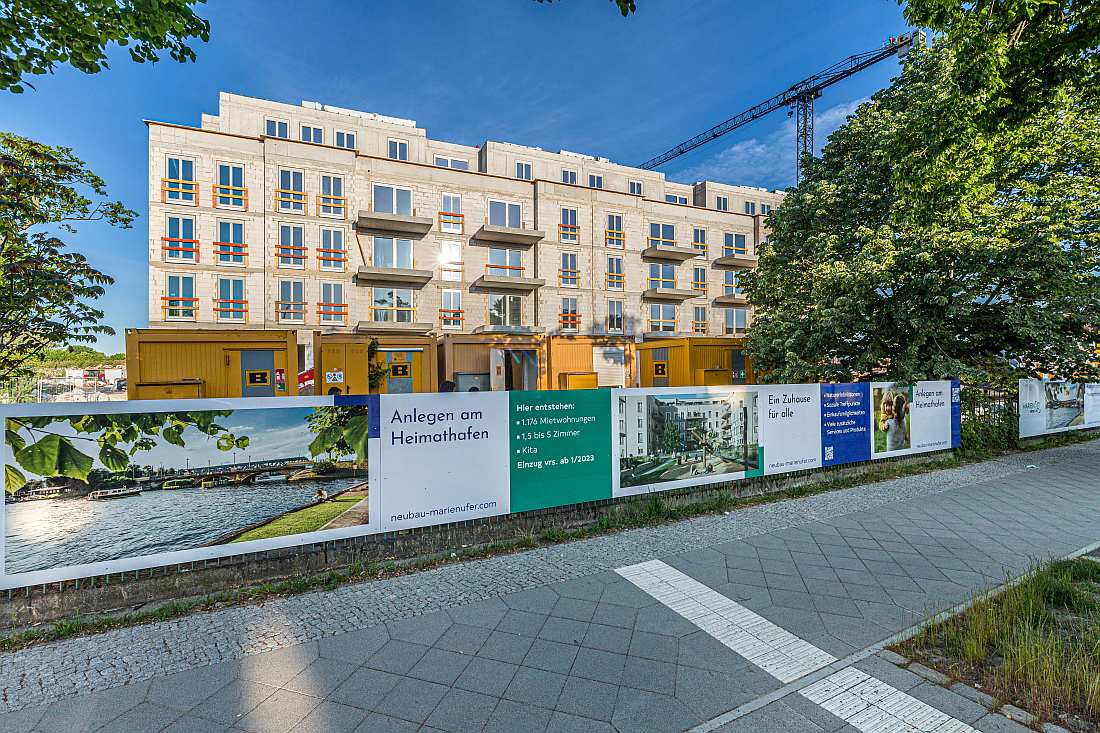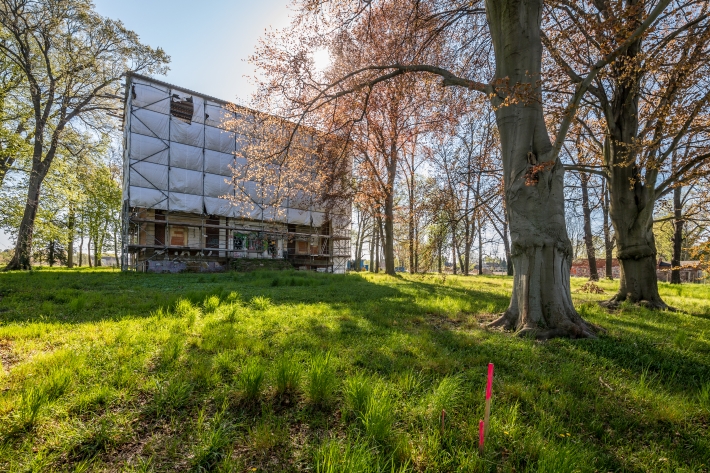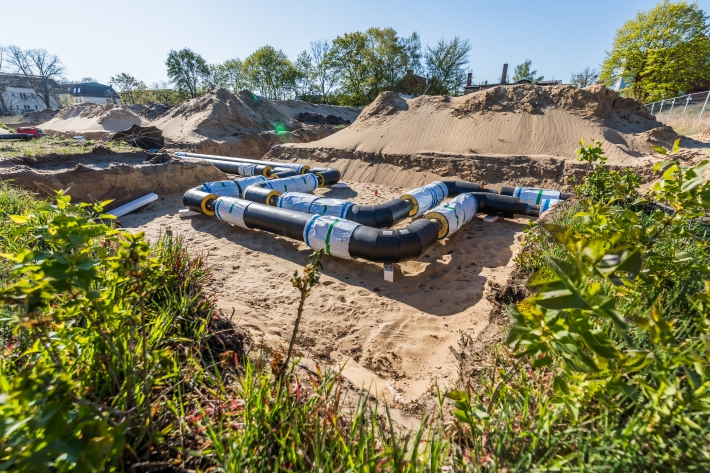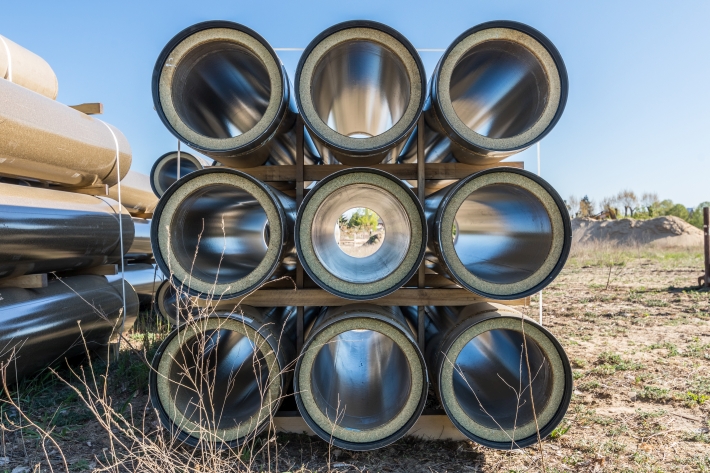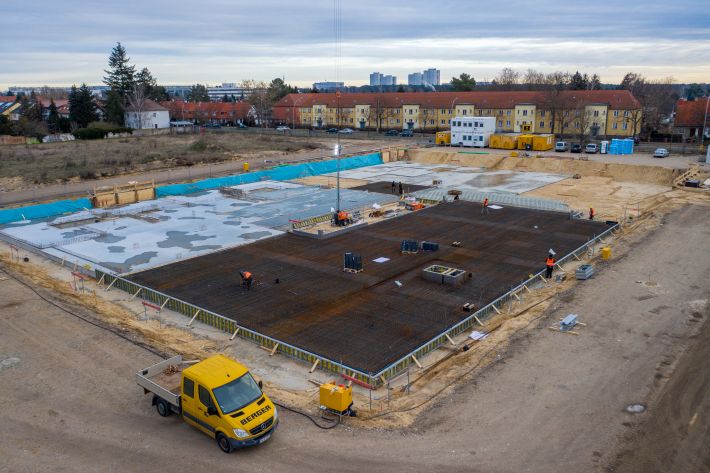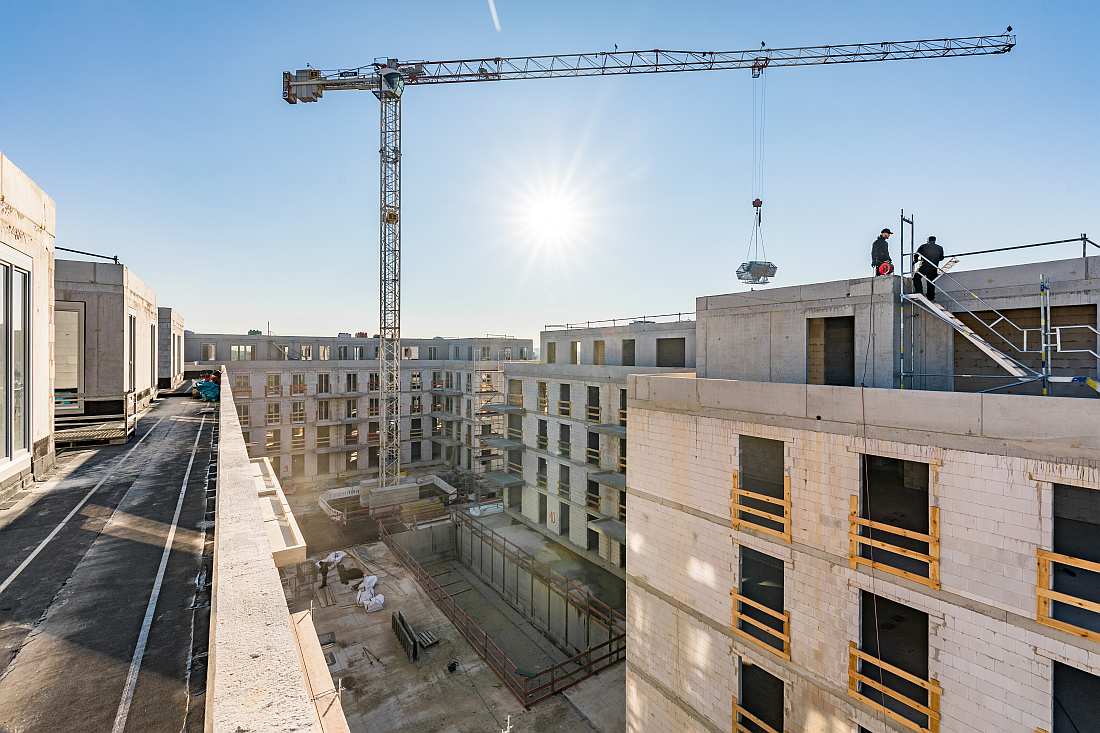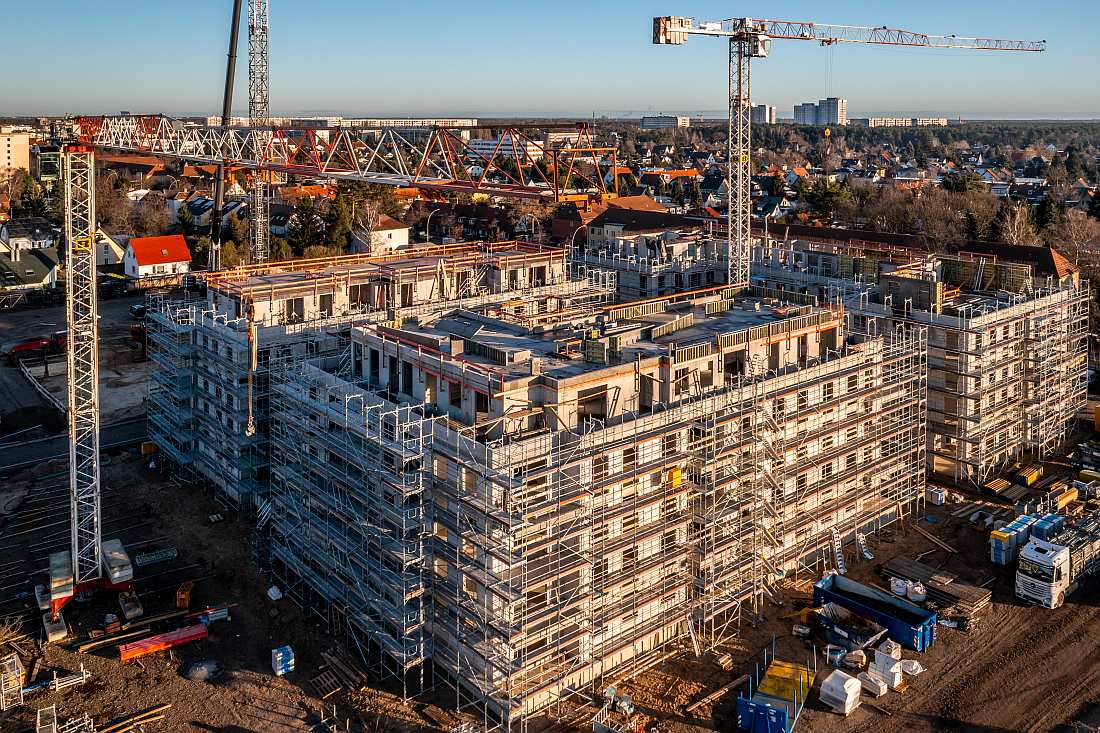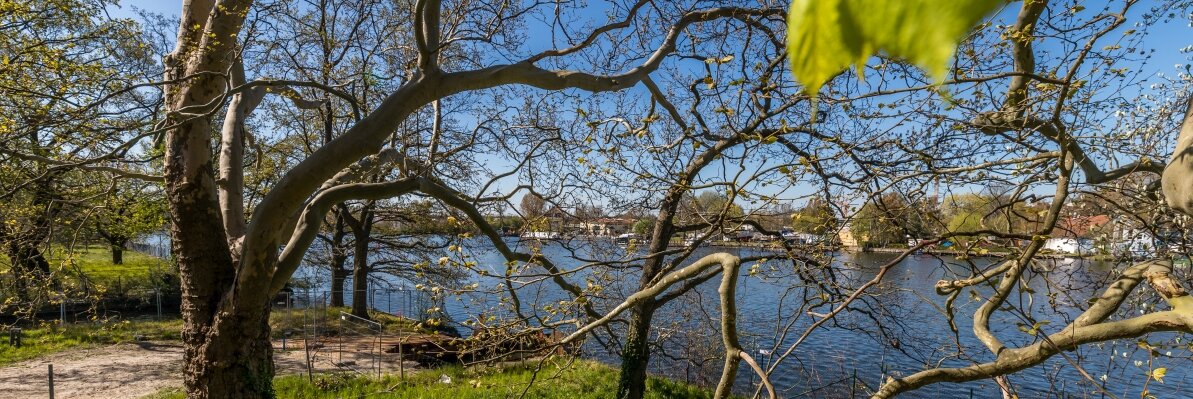
A sustainable neighbourhood for all ages
A new development is emerging at Marienhain in Berlin’s Köpenick district. On a disused site, Deutsche Wohnen is building “Marienufer” – a new neighbourhood that will offer a new home to people of all generations. The property is right on the banks of the Dahme at Wendenschloßstraße and offers a few special features that will benefit the general public, as well as future residents: a small woodland that will be home to a public garden, the listed Villa Bolle, a park with play facilities and a riverside promenade.
On the historic site, over 150,000 m² in area, around 1,200 apartments are taking shape, split between 63 different blocks. A range of listed buildings, including the historic Villa Bolle, which was largely destroyed by fire in 2008, will be rebuilt in line with conservation principles. The development will also be home to a nursery and there will be spaces for cafés, shops and offices. The project will also have a special impact beyond its own borders: a publicly accessible tree-lined avenue will cross the site from Wendenschloßstraße to the river.
Sustainable in many respects
Deutsche Wohnen’s aim is to obtain “Gold” standard certification from the German Society for Sustainable Construction (DGNB) for this new construction project. To achieve this certification, a range of different aspects must be examined. The project’s technology and processes are put through their paces, alongside its economic, environmental, social, cultural and functional aspects.
A look at the details reveals how committed the planners are in this regard. Solar panel systems will supply electricity, and residents can charge their electric cars at specially designed parking spaces. A central package station for all residents is designed to reduce traffic in the neighbourhood, while a mobility hub with central car, scooter and bike sharing options is intended to complement existing public transport facilities.
A brief look back at a long history
The historic Villa Bolle is named after Carl Andreas Julius Bolle. The famous owner of the Meierei C. Bolle owned a milk business and was mostly known to locals as “Bimmel-Bolle” – “Jingle Bolle” in English. He got this nickname from the bells his team of milk sellers used to attract custom on the Bolle milk floats. In 1910, 250 of these milk floats could be found on the streets of Berlin. He built a villa at Marienhain that he used as a summer home. Fruit and vegetables were grown and cattle were kept there. Later, a dairy was built. After the end of the Second World War, the Humboldt University and its Institute for Floriculture took over the site. In recent years, it fell into disuse and the Villa Bolle burned down.
All that remains are parts of the historic paving stones of the “Marienhainallee”, the main road that led across the site. They will be restored as part of the construction works and fruit trees will be planted along the edges – recalling the former use and history of the site.
